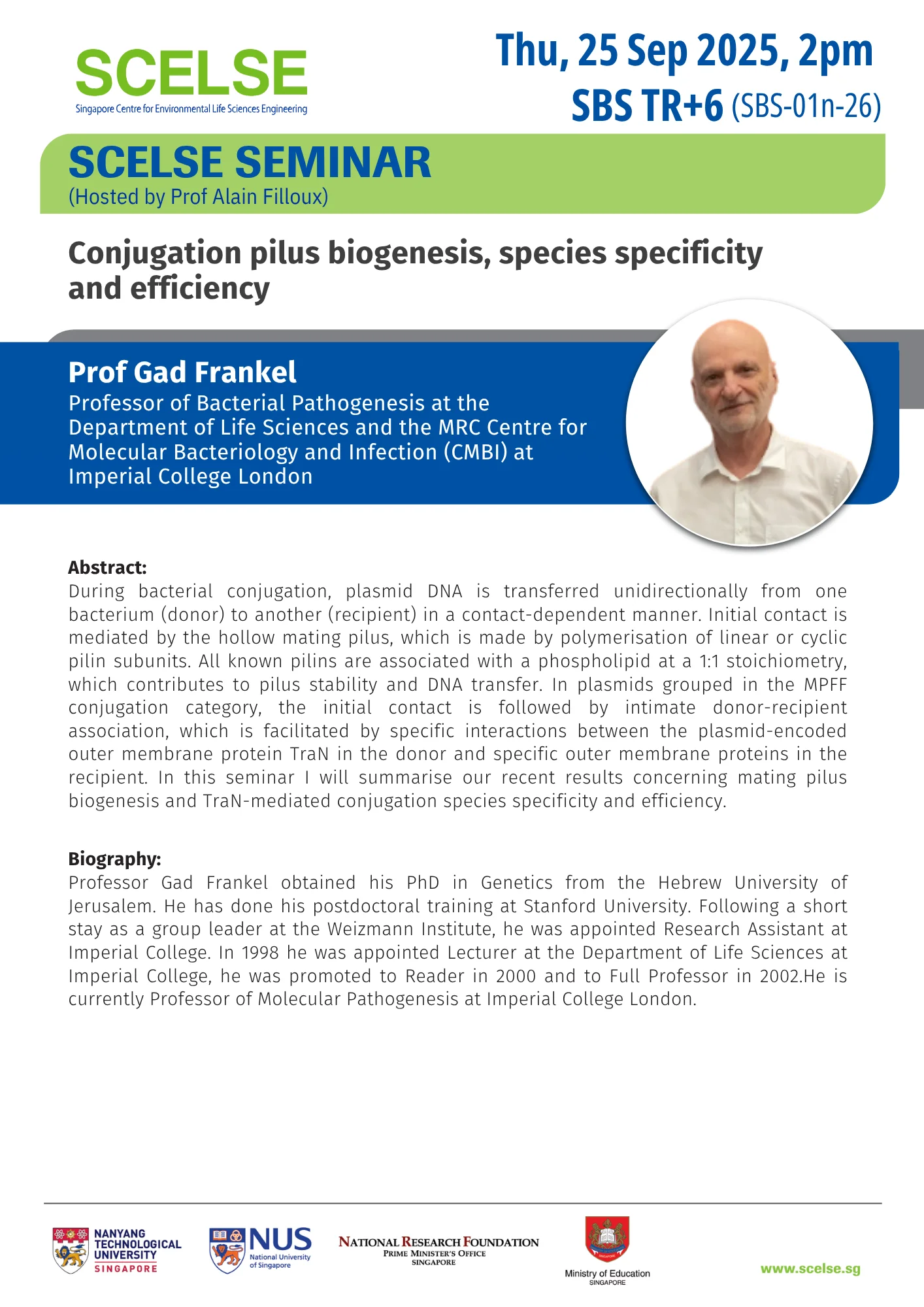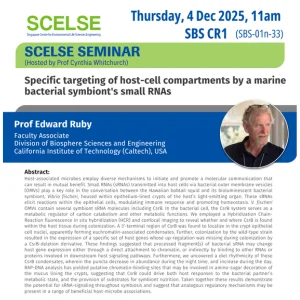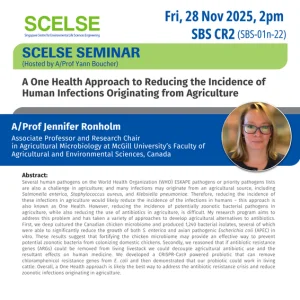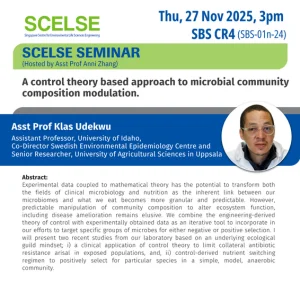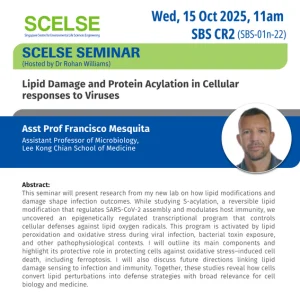Conjugation pilus biogenesis, species specificity and efficiency
Date: Thursday, 25 Sep 2025
Time: 2pm – 3pm
Venue: SBS TR+6 (SBS-01n-26)
Abstract:
During bacterial conjugation, plasmid DNA is transferred unidirectionally from one bacterium (donor) to another (recipient) in a contact-dependent manner. Initial contact is mediated by the hollow mating pilus, which is made by polymerisation of linear or cyclic pilin subunits. All known pilins are associated with a phospholipid at a 1:1 stoichiometry, which contributes to pilus stability and DNA transfer. In plasmids grouped in the MPFF conjugation category, the initial contact is followed by intimate donor-recipient association, which is facilitated by specific interactions between the plasmid-encoded outer membrane protein TraN in the donor and specific outer membrane proteins in the recipient. In this seminar I will summarise our recent results concerning mating pilus biogenesis and TraN-mediated conjugation species specificity and efficiency.
Speaker:
Prof Gad Frankel
Professor of Bacterial Pathogenesis at the Department of Life Sciences and the MRC Centre for Molecular Bacteriology and Infection (CMBI) at Imperial College London
Biography:
Professor Gad Frankel obtained his PhD in Genetics from the Hebrew University of Jerusalem. He has done his postdoctoral training at Stanford University. Following a short stay as a group leader at the Weizmann Institute, he was appointed Research Assistant at Imperial College. In 1998 he was appointed Lecturer at the Department of Life Sciences at Imperial College, he was promoted to Reader in 2000 and to Full Professor in 2002.He is currently Professor of Molecular Pathogenesis at Imperial College London.
